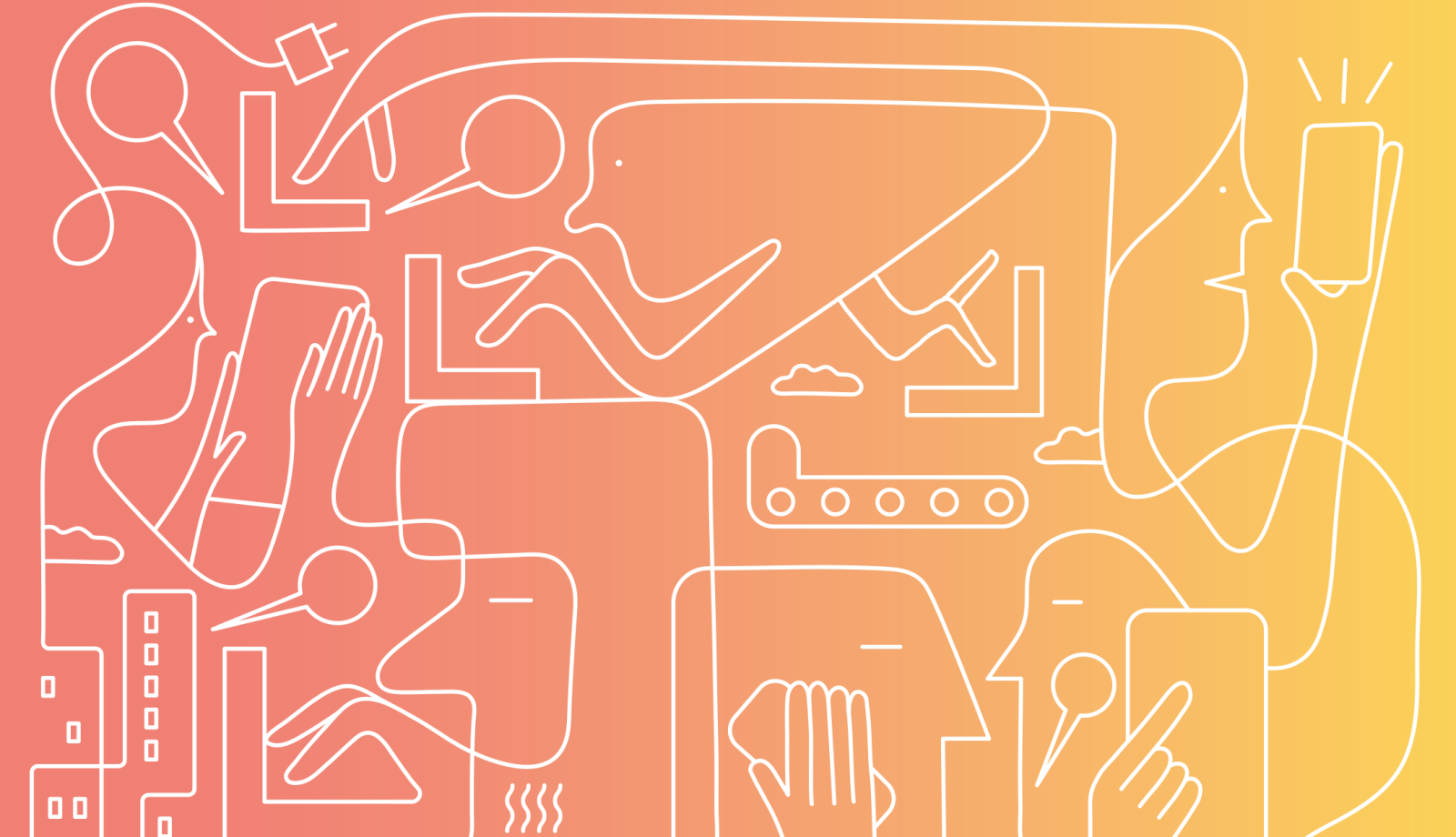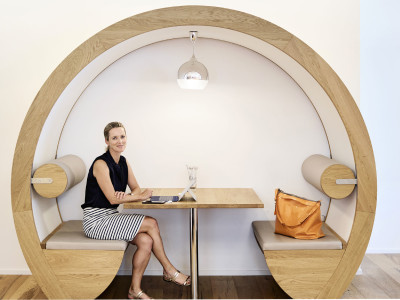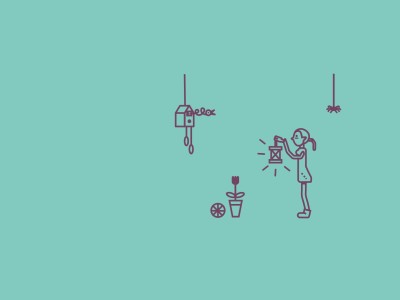
More freedom? More pressure? Incisive thoughts from Ludwig Hasler
The philosopher and journalist muses on the effects of the modern working environment on the human being.
The future’s already here. At the new Microsoft headquarters in Munich, for example, with 1,900 employees and 1,100 workstations. Well, the staff only come in when they feel like it. Otherwise they work at home or in the Englischer Garten. Their place of work is their laptop. The hierarchy is invisible, the organisation open. The teams not only operate independently but also dynamically. In other words, without fixed contours.
What will happen to human beings in this new working environment? Will they become freer, more independent, more committed? In traditional professional environments, the human being had little scope for individualism. Companies were organised like machines, as perfectly as possible, turning employees into cogs that precisely executed the chief engineers’ instructions, and that was that. According to a Gallup survey, it therefore comes as no surprise that, even today, 70 per cent of all employees in Switzerland make do with “working to rule” as if they were nothing more than slaves: super training, underdeveloped in the commitment department.
Is something about to change? Is the new working world turning slaves into masters? Of course, we’ll never be able to do whatever we want. But nor does freedom mean that I can do whatever I want. It means that I make what I do my own business. We remain the late descendants of Sisyphus, who – punished by the gods – has to roll a boulder up the mountainside, never reaches the summit, unceasingly starts anew, and is thus considered the prototype of human futility. “But we must imagine Sisyphus as a happy man,” says Albert Camus. For this Sisyphus refuses to suffer the boulder as a punishment of the gods; he has the strength to decide: this is my boulder. No matter where I end up, I’m doing my own thing. That way, I feel free and cheerful, no matter who my boss is.
But what about all the not-quite-so-talented ones, who never bend over backwards but do a decent job within the protective confines of the company?
Doing your own thing: the secret of a successful life is that simple. Making what I am working on my own, personal affair. Motto: I’m the player, not the pawn. Flexible work can make that easier to achieve. More home office, more time sovereignty, more self-determination? We have the technical capabilities. It is not only advertising people, programmers and editors who can easily work from home. Why should doctors, engineers and administrators always do all their office work in the office when data is sent online anyway? Gainful employment and private life can coexist in greater harmony: running the children around, taking care of relatives, doing the housework – it’s all less stressful if you can work around it. For women, home office work is as revolutionary “as the pill in the 60s,” says Sylvia Coutinho, CEO of UBS Brazil. “It offers all kinds of freedoms.” Work while the children are asleep, join video conferences while you’re cooking.
Since when has anyone sitting alone on a beach urgently seeking ideas ever found themselves bursting with inspiration?
All splendid. However: careers aren’t made online; those who aren’t present at headquarters will be left behind at home. Indeed, freedom also creates more pressure. If the company doesn’t care where and when we work, it means the only thing that matters is our performance. In such cases, we are exactly what we produce (ideas, software, products). I = my output. Input becomes a private matter. Great times for talented people, for quick-witted, inventive, creative minds. They no longer have to sit for hours in the office. They deliver just in time and then go off sailing. Or they deliver their assignments from their sailing boats. But what about all the others, the not-quite-so-talented ones, who never bend over backwards but do a decent job within the protective confines of the company? For them, flexibility becomes a threat. Today’s new employees are supposed to give their all for an assignment – and become accustomed to being employed on probation for life. Me, Inc.? Great. But can everyone cope with the life of a highly qualified vagrant?
Much of this is theory – and some of it will probably remain so. In practice, most companies have the entirely old-fashioned need for flesh-and-blood human beings who work at specific times. It isn’t only hotels that will probably never be managed as platforms for crowd workers sitting at home at their laptops. And as far as the creative types are concerned, since when has anyone sitting alone on a beach urgently seeking ideas ever found themselves bursting with inspiration? Clever ideas tend to occur to us by the by, during a casual conversation next to the coffee machine or over a beer after work. According to brain researcher Joachim Bauer, that’s because our brain, although nothing short of miraculous, is not a calculator but a “social organ”. And it needs attention, interest and stimulation to be motivated. “Other people are the strongest motivational drug.”
An unequivocal state of affairs simply cannot be found on earth. The best thing, then, is a clever mixture: as many freedoms as possible, provided that employees become flexible co-entrepreneurs. Yet they should also be aware that they will best succeed at this if they work as a close-knit group. Doing their own thing, of course.



